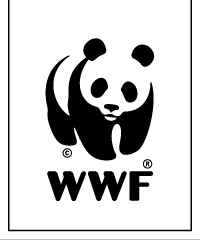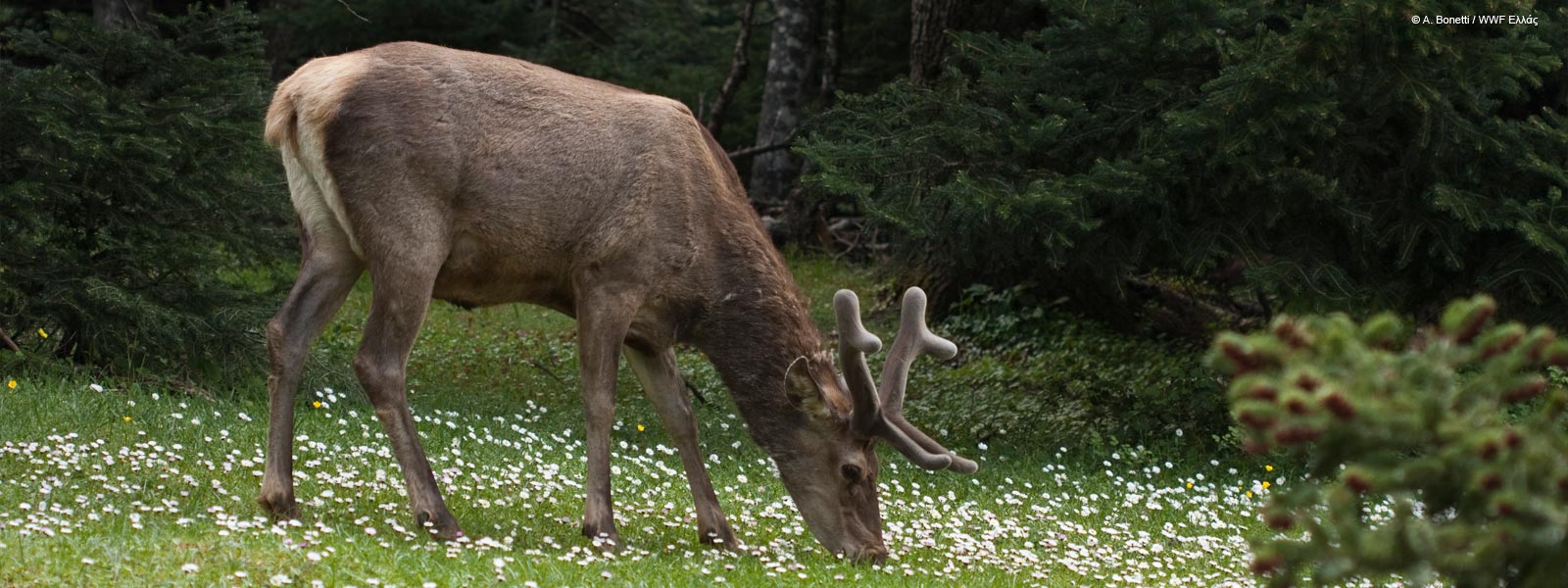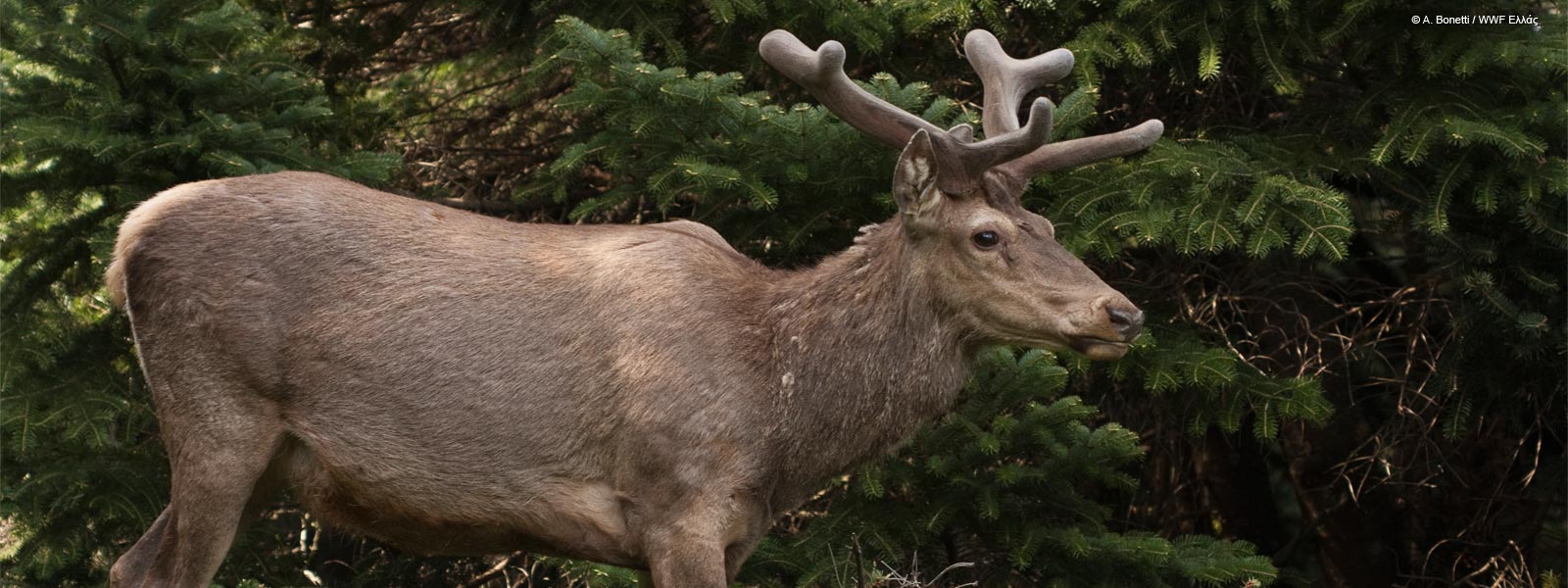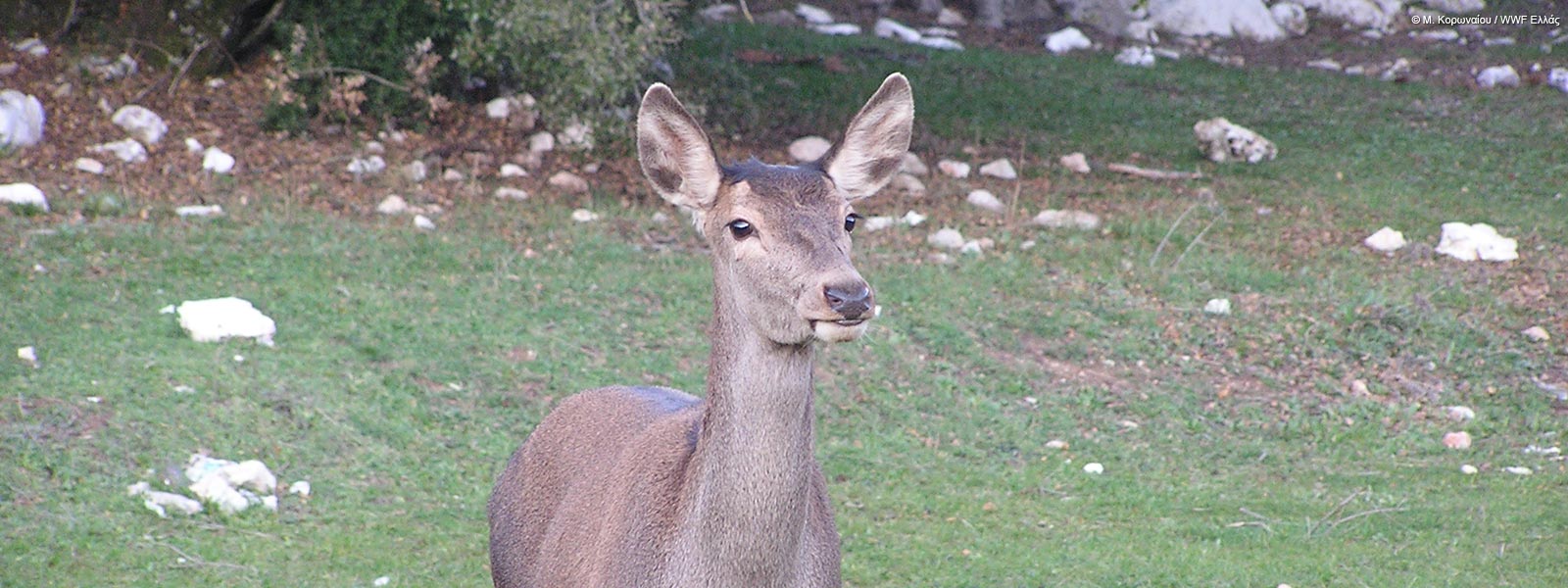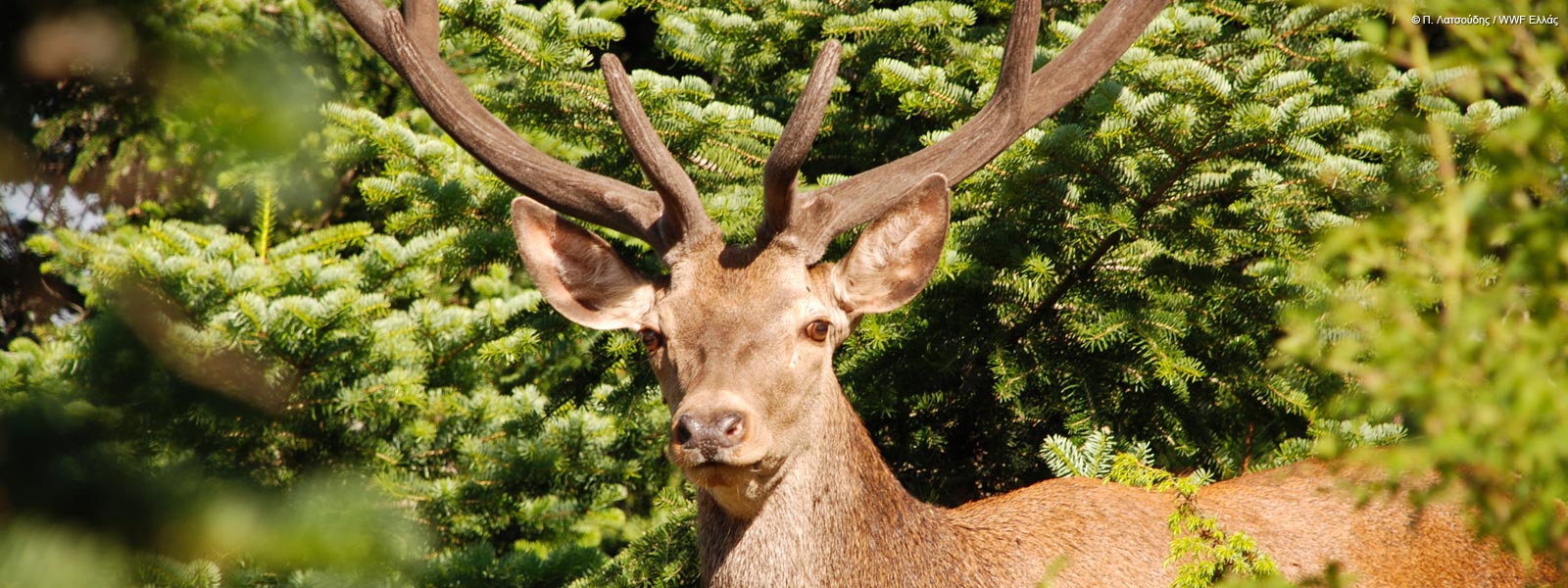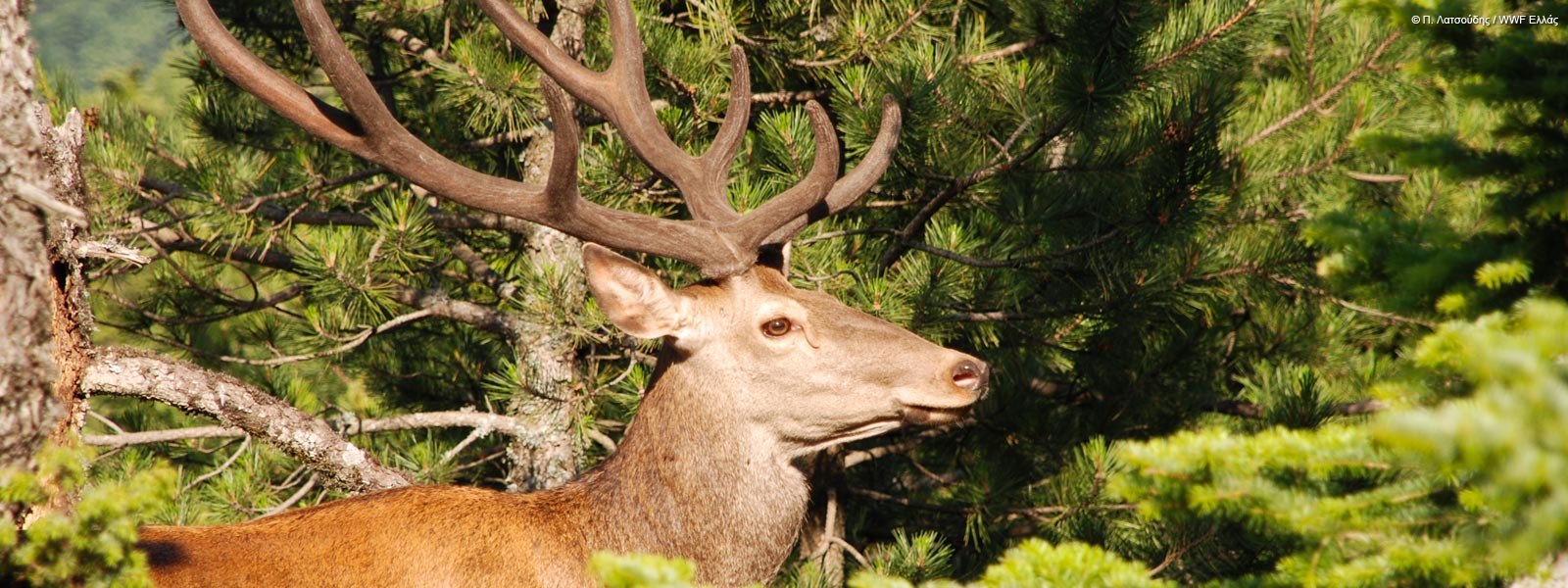The red deer (Cervus elaphus) is the largest herbivore in Greece and definitely one of the most popular species of the Greek forests. As an inextricable part of Greek nature, red deer have a crucial role to play in the development and evolution of ecosystems, particularly now that free range animal husbandry is being gradually abandoned.
The Life of the Red Deer
Red deer have had a continuous presence in Greece since as early as prehistoric times. As natural grazers, they have always played an important part in the base of the food pyramid. Large raptors and vultures, which today are also threatened with extinction, could rely on the existence of deer to survive. After all, biodiversity is nothing but a web of inextricably connected links.
Life under Threat
Red deer used to live throughout the Greek mainland. In only a few decades, their populations have been depleted so dramatically that the species is now considered critically endangered according to The Red Data Book of Threatened Animals of Greece (Athens, 2009).
By the end of the 20th century, deer had been confined to the peninsula of Sithonia, the mountains of Rodopi and Parnitha. Today, the Sithonia population is extinct. The protected population of Parnitha seems to be the most robust in the country. Small numbers of deer are kept in breeding farms, and there is a chance that a few animals still exist in the Raftanei-Pramanta region in Epirus from an earlier enrichment.
Poaching is the greatest threat to deer in Greece. Nowadays, the remaining populations are isolated patches. The possibility of deer expansion to new areas is curtailed by the loss of adequate habitats as a result of intensified agriculture, settlement expansion and disturbance.
The life We Protect
In a study entitled Research of Red Deer Ecology on Mount Parnitha (in Greek), WWF Greece recorded the most important data about the Parnitha population.
The study lasted three years (2007–2009) and concluded with - among others - a special plan of systematic red deer monitoring in Parnitha (in Greek) and a plan of action for deer in Greece (in Greek) in general.
To conserve the existing population and help the species spread to new habitats besides Parnitha, WWF Greece advocates for the improvement and implementation of legislation concerning hunting, trading and trafficking as well as keeping animals in captivity and releasing them to the wild. The creation of a wildlife medical care center is also of vital importance. Another measure to be considered - providing it follows adequate preparation - is the organized artificial breeding of subpopulations. Finally, raising awareness is necessary, particularly among the inhabitants, hunters and visitors of areas where new subpopulations could be developed.
Share this
